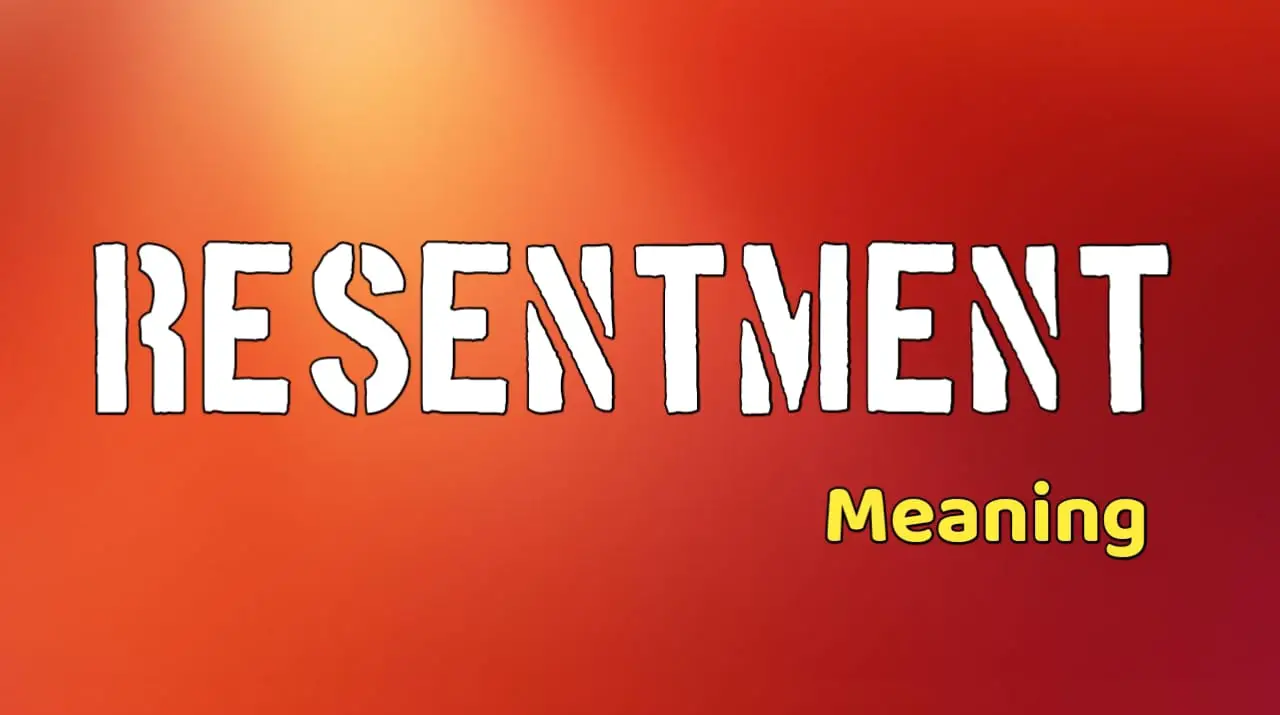In the intricate landscape of human emotions, resentment stands out as a complex and often misunderstood feeling. In this exploration, we delve into the resentment meaning, unraveling its layers to better comprehend its impact on our lives.

Defining Resentment
Resentment is more than a passing emotion; it’s a lingering sense of bitterness and indignation. It’s a cocktail of disappointment, anger, and hurt that simmers beneath the surface. Understanding resentment requires recognizing its roots in perceived injustice or mistreatment.
The Anatomy of Resentment
1. Perceived Injustice
Resentment often germinates from a perceived injustice. It could be a real or imagined offense, a betrayal, or an unfulfilled expectation. The feeling festers when we believe we’ve been wronged.
2. Unmet Expectations
Unmet expectations are breeding grounds for resentment. When the gap between what we expect and what we receive widens, discontent sets in. Managing expectations becomes crucial in navigating this emotional terrain.
3. Power Dynamics
Resentment can also be a byproduct of power imbalances. In relationships, work, or society at large, feeling powerless or unfairly treated can cultivate a deep-seated resentment that colors our interactions.
The Impact of Resentment
Unaddressed resentment can cast a long shadow over our well-being. It affects mental and emotional health, strains relationships, and can even manifest physically. The weight of resentment is something we carry with us, impacting our outlook on life.
1. Mental Health
Resentment can contribute to stress, anxiety, and even depression. It occupies mental space, creating a constant background noise that hinders our ability to fully engage with the present.
Also Read : Furlough Meaning
2. Relationship Strain
In personal and professional relationships, harboring resentment can erode trust and intimacy. Communicating and addressing the source of resentment is crucial for maintaining healthy connections.
3. Physical Manifestations
The mind-body connection is powerful, and resentment is no exception. Chronic resentment has been linked to physical ailments like headaches, digestive issues, and even cardiovascular problems.
Coping with Resentment
1. Acknowledgment
The first step in dealing with resentment is acknowledging its presence. Understanding what triggered the emotion allows us to confront it head-on.
2. Communication
Open and honest communication is key to resolving resentment. Expressing feelings, concerns, and expectations can foster understanding and pave the way for reconciliation.
3. Setting Boundaries
Establishing clear boundaries is a proactive measure to prevent future resentment. Communicate your needs and expectations to create a healthier dynamic.
Conclusion
In the tapestry of human emotions, resentment is a thread that, if left unexamined, can unravel the fabric of our well-being. By understanding its origins, acknowledging its presence, and actively addressing its impact, we can navigate the complex terrain of resentment and foster healthier connections with ourselves and others.
As we unravel the layers of resentment, let’s remember that it’s okay to feel, but it’s equally important to release what no longer serves us, making room for growth, understanding, and ultimately, a more fulfilling life.






